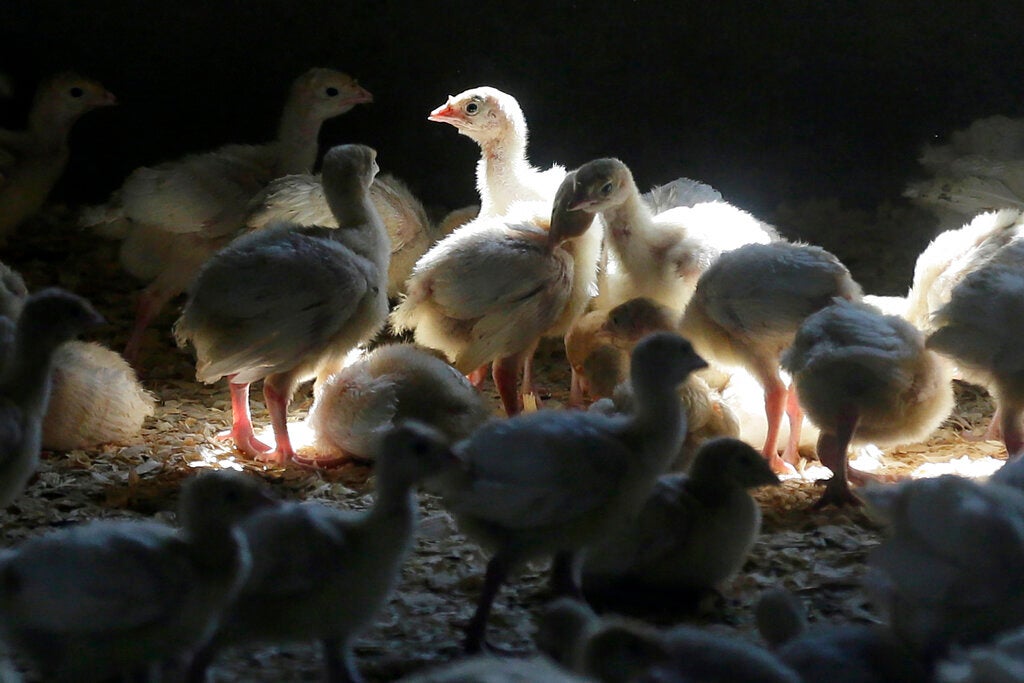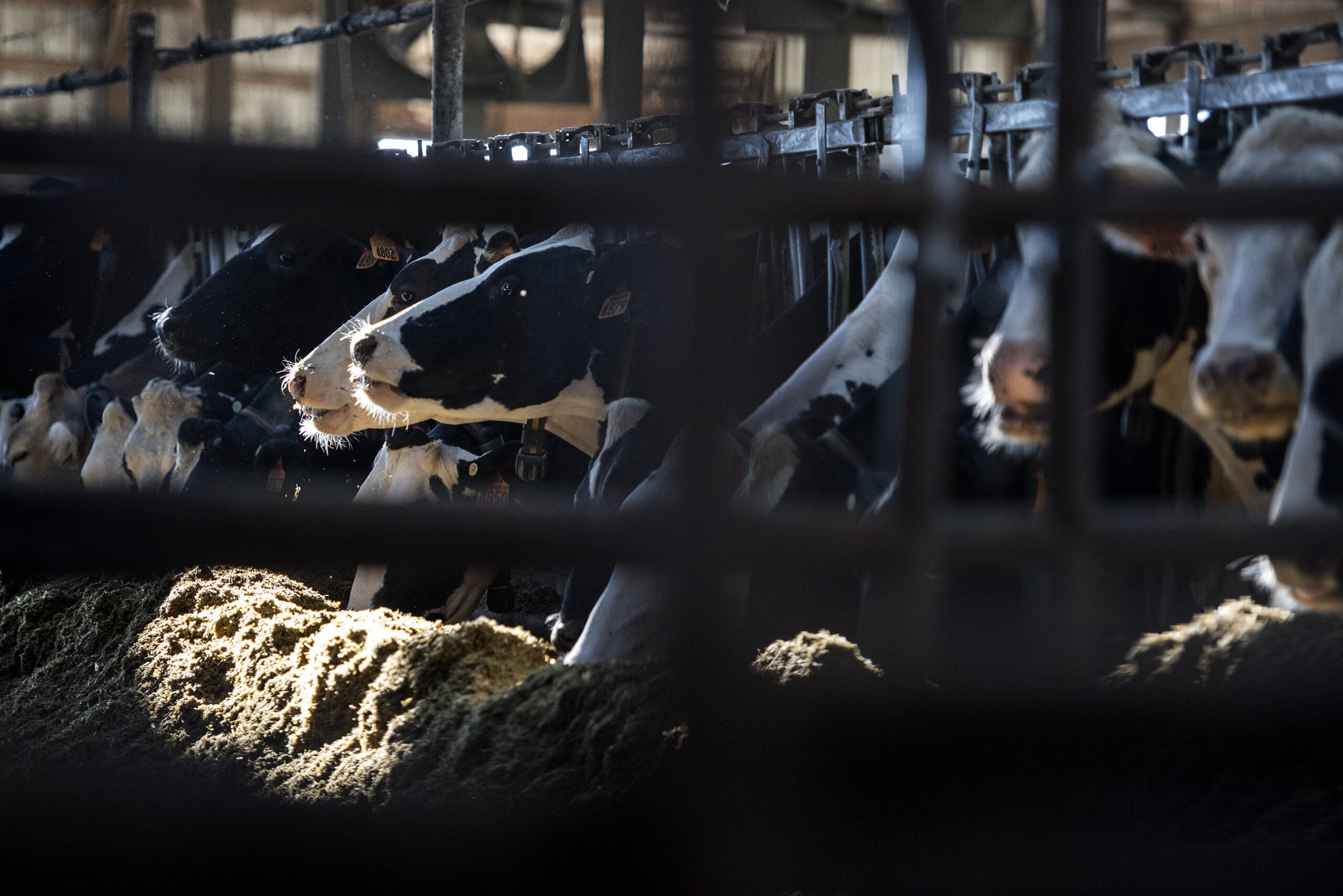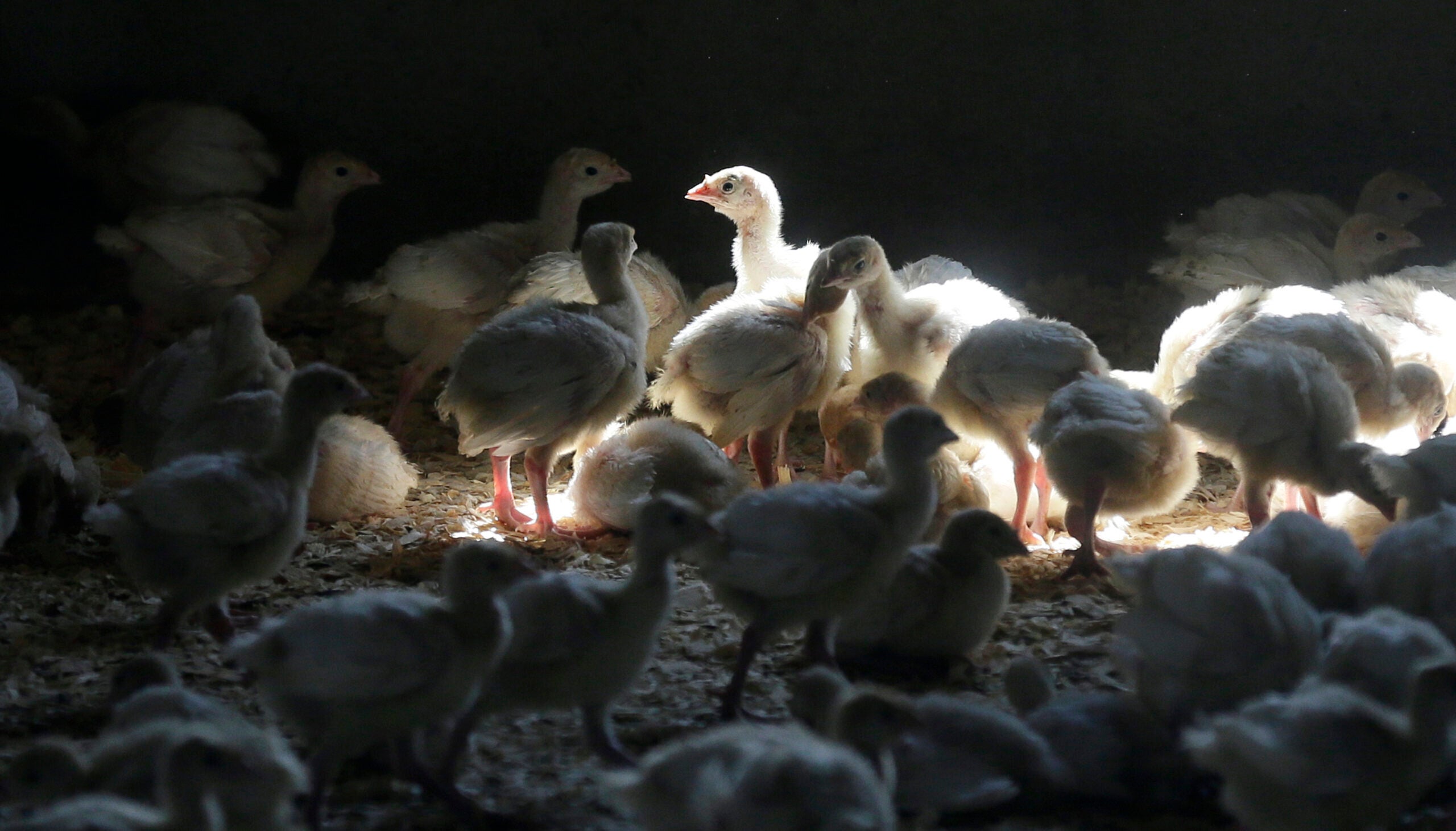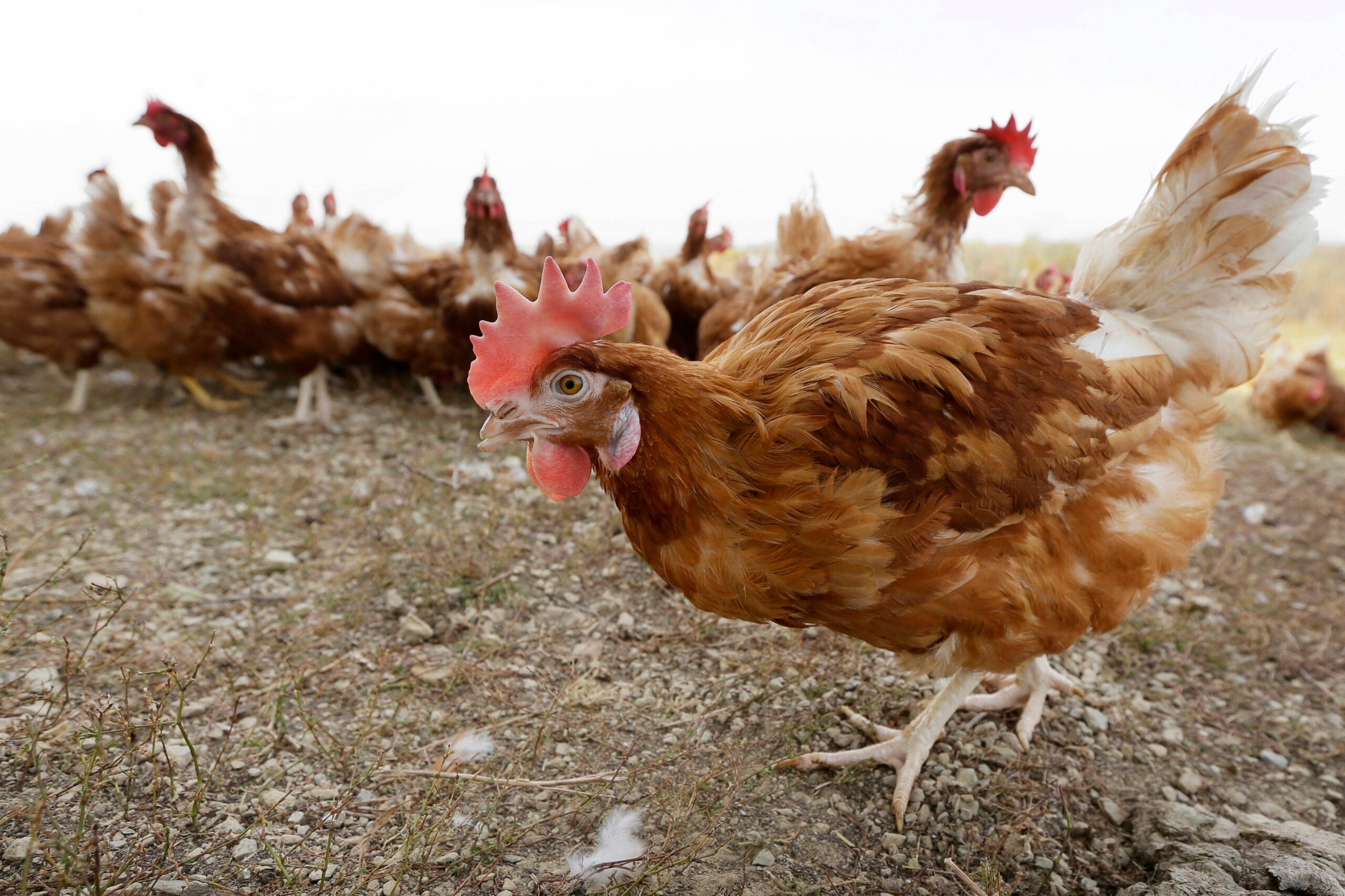Consumers paid steep prices for turkey during last year’s Thanksgiving after highly pathogenic avian influenza devastated poultry farms across the country, including in Wisconsin.
But experts say the market has mostly recovered before heading into this year’s holiday season.
U.S. farms are forecast to raise 219 million turkeys this year, up 4 percent from 2022. This year’s production is expected to be slightly higher than before the avian flu outbreak, with 216.5 million turkeys raised in 2021.
News with a little more humanity
WPR’s “Wisconsin Today” newsletter keeps you connected to the state you love without feeling overwhelmed. No paywall. No agenda. No corporate filter.
A report by the American Farm Bureau Federation found the strong production numbers have already helped bring down turkey prices over the last five months. The average whole hen turkey price in August was 22 percent lower than the same month in 2022, while boneless turkey breast prices declined 61 percent in the same period.
Ron Kean, poultry specialist for the University of Wisconsin-Madison’s Division of Extension, said prices are still elevated compared to before last year thanks to the broad impact of inflation.
“We’ve seen transportation costs increase and feed costs increase and labor costs and things like that,” Kean said. “I don’t know if we’ll ever get back to the prices we saw pre-COVID, but they’re certainly down from what they’ve been in the last year.”
Wisconsin’s total turkey production numbers aren’t released to avoid disclosing data for specific producers. Kean said the state’s farms produce an estimated 5 million commercial turkeys annually and most are male birds, or toms, that are sold for processed products and not whole birds.
Any poultry farm with an avian influenza outbreak faces serious costs, according to Kean, including disposing of sick and culled birds, cleaning their facilities and repopulating their flock. He said it has also been difficult to find enough chicks to rebuild.
“Especially with the egg producers, that’s been a problem trying to replace those chicks,” Kean said. “There’s not just tens of thousands of new chicks available all the time. So it is kind of a slow process.”
For specialty turkey producers in the state, it’s the availability of processing, not birds, that is causing problems for farms.
Deanna Scott and her family own Old Glory Farm in Elkhorn and raise pastured turkeys for the holiday season. She said they booked the appointment to process their 550 turkeys right after midnight on Jan. 1, before the birds had even hatched. Scott said she used to book a processing date a few months in advance as recently as 2017. But in the last few years, the number of businesses doing poultry processing has become more limited.
“We raised exactly the amount of turkeys we could get processing appointments for this year,” she said. “If we could have had more processing appointments, we would have raised more turkeys.”
Scott said they typically sell all of their turkeys through preorders by the beginning of October. But despite raising more birds than ever this year, they sold out a month early. She said the limited processing capacity has caused some farms to stop raising turkeys, while others have retired without someone to take over their business.
“We’re getting a lot of new customers, along with our customers who’ve been with us year after year, who need a fresh turkey for Christmas,” she said. “They’re just looking to get one because their original farm has shut down.”
Scott said they added protective measures in place last year to protect their flock against avian influenza. But because the disease has been spread through migrating wild birds, she said there is only so much her farm can do to separate their birds from outside contact.
“We would lock up our turkeys as soon as dark hit,” she said. “We wanted to make sure they were back in the building and we were not leaving them exposed outside longer than their normal pasture time. So we were just trying to be extra careful, but ultimately, you’re kind of at the mercy of nature.”
Wisconsin has not had a case of avian influenza since last November, according to the state Department of Agriculture, Trade and Consumer Protection.
But Kean said the virus is still circulating in wild birds and a new case was confirmed at a South Dakota turkey farm last week.
“It’s still out there, and so I’m afraid we are likely to see at least some cases here in the next couple of months,” he said.
Wisconsin’s monthly egg production has rebounded from last year’s avian flu outbreak and has even been tracking above 2021 levels since May, according to U.S. Department of Agriculture data.
National egg prices have also fallen over the last four months, with the American Farm Bureau reporting August prices were down 30 percent from the same month in 2022.
Wisconsin Public Radio, © Copyright 2025, Board of Regents of the University of Wisconsin System and Wisconsin Educational Communications Board.






